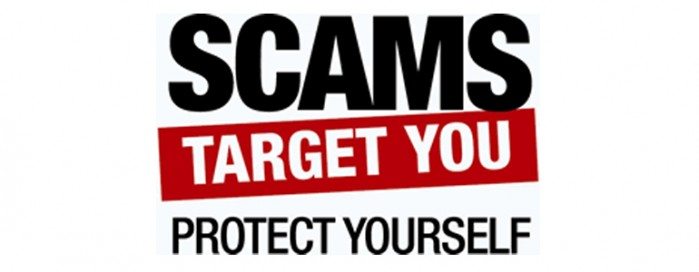Scammers are getting increasingly sophisticated in their attempts to get your money or personal details. Be alert and protect yourself from being scammed by following our tips.
Scams target everyone
Scams target people of all backgrounds, ages and income levels across Australia. There’s no one group of people who are more likely to become a victim of a scam. It’s not only the naïve and gullible who fall victim; all of us may be vulnerable to a scam at some time.
Scams succeed because they look like the real thing and catch you off guard when you’re not expecting it. They also exploit your desire to be polite and respectful, as well as your generosity, compassion and good nature.
Protect yourself
- Be alert to the fact that scams exist. When dealing with uninvited contacts from people or businesses, whether it’s over the phone, by mail, email, in person or on a social networking site, always consider the possibility that the approach may be a scam. Remember, if it looks too good to be true, it probably is.
- Know who you’re dealing with. If you’ve only ever met someone online or are unsure of the legitimacy of a business, take some time to do a bit more research. Do a Google image search on photos or search the internet for others who may have had dealings with them.
- Do not open suspicious texts, pop-up windows or emails – delete them: If unsure, verify the identity of the contact through an independent source such as a phone book or online search. Don’t use the contact details provided in the message sent to you.
- Keep your personal details secure. Put a lock on your mailbox and shred your bills and other important documents before throwing them out. Keep your passwords and pin numbers in a safe place. Be very careful about how much personal information you share on social media sites. Scammers can use your information and pictures to create a fake identity or to target you with a scam.
- Keep your mobile devices and computers secure. Always use password protection, don’t share access with others (including remotely), update security software and back up content. Protect your WiFi network with a password and avoid using public computers or WiFi hotspots to access online banking or provide personal information.
- Choose your passwords carefully. Choose passwords that would be difficult for others to guess and update them regularly. A strong password should include a mix of upper and lower case letters, numbers and symbols. Don’t use the same password for every account/profile, and don’t share your passwords with anyone.
- Beware of any requests for your details or money. Never send money or give credit card details, online account details or copies of personal documents to anyone you don’t know or trust. Don’t agree to transfer money or goods for someone else: money laundering is a criminal offence.
- Be careful when shopping online. Beware of offers that seem too good to be true, and always use an online shopping service that you know and trust. Think twice before using virtual currencies (like bitcoin) – they do not have the same protections as other transaction methods, which means you can’t get your money back once you send it. Learn more about online shopping scams.
How to spot a fake
Clues for spotting a fake document
Documents are easily faked. Some will look just like the real thing but others might have warning signs, such as:
- generic rather than personal greeting
- names of organisations that don’t exist
- poorer quality presentation
- poorer quality grammar and spelling
- overly official or forced language.
Documents such as flight itineraries and bank statements have simple, uncomplicated layouts even when they are legitimate because such businesses allow their customers to print online statements. This simplicity means such documents are extremely easy to fake. Scammers can also look up real flight numbers and times online and take company logos and graphics from websites.
Clues for spotting a fake email
Scammers can easily fake an official-looking email, using the same logo and email design as the real company.
Often your guard is down when you receive an email from a company you’ve dealt with before, such as Australia Post or an online shopping site you use. If you’re not expecting an email, always be alert to a fake before clicking on any links or opening any attachments.
Clues for spotting a fake dating profile
When looking at a new dating profile, note anything unusual about their choice of:
- photo
- location
- interests
- language skills matched to background.
Scammers often use fake photos they’ve found online.
Tip: Do an image search of your admirer to help determine if they really are who they say they are. You can use image search services such as Google or TinEye.
Follow up scams
Scammers will often try to take advantage when you’re feeling vulnerable and try to extract more money from you through a follow up scam.
Some common follow up scams include:
- offers from a law enforcement agency to investigate your scam and retrieve your money for a fee. Law enforcement agencies do not charge for their services
- a doctor calling you to alert you that the scammer urgently needs medical bills to be paid or they might die
- a woman contacting you to explain she is the scammer’s wife and wants to escape him but needs money to do so.
These are only a few of the follow up angles scammers may use try to get more money from you. New approaches could be quite different from the original scam and could come quickly or some time later. Scammers may have passed your details to other scammers with entirely different methods and the new angle may seem totally unrelated to the original scam.
